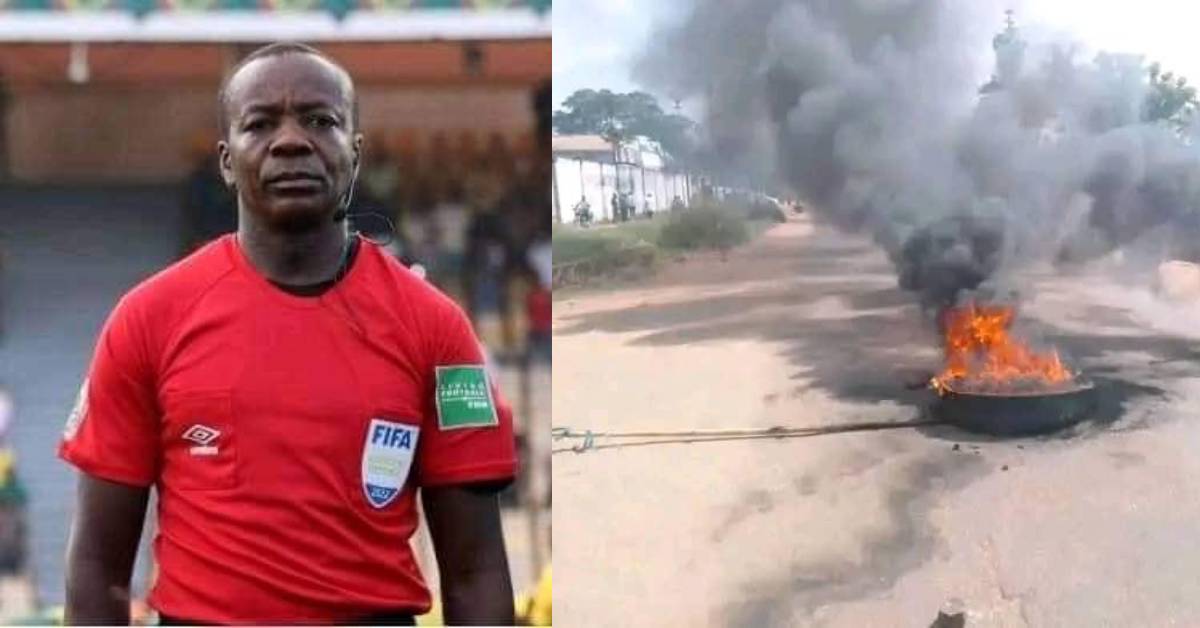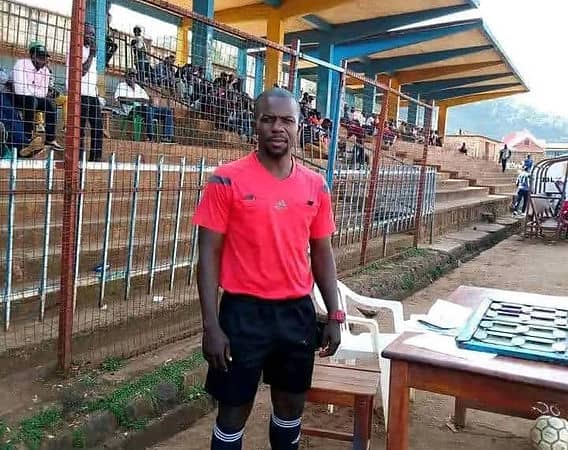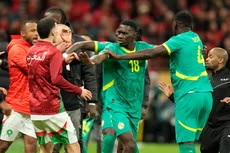Tragedy in DR Congo: Referee lynched and burned alive in Bukavu

A referee was lynched and set on fire by an enraged crowd in Bukavu, eastern Democratic Republic of Congo, in a horrifying act of mob justice that has sent shockwaves through the nation’s sporting and civic communities.
Patrick Ngalamulume, widely known as “Ngalas,” was attacked and killed in the Irambo neighbourhood overnight between 5 and 6 May 2025.
The 36-year-old official, who was affiliated with the Bukavu Urban Football Association (EUFBUK), was accused without evidence of theft before being brutally beaten and burned alive by locals.
Eyewitnesses say the attack unfolded in full view of nearby residents, none of whom were able to intervene in time.
Emergency services did not reach the scene before the crowd carried out the killing. What began as an unverified accusation quickly spiralled into a deadly public execution, leaving no room for due process or defence.
The killing underscores the deteriorating security situation in the eastern part of the country, where civil unrest and the presence of armed rebel groups such as the AFC M23 have left communities increasingly vulnerable.
Cities like Bukavu and Goma have been gripped by instability, with a rise in extrajudicial violence and mob justice filling the void left by weakened law enforcement.
Patrick Ngalamulume, known in the local sporting world for his professionalism and commitment to football, had no criminal record.
His violent death has deeply shaken the football community, with colleagues, sports officials, and residents expressing their sorrow and disbelief. His killing has renewed concern over the dangers posed by unchecked vigilantism.
In the wake of the incident, community leaders, sports authorities, and civil society figures have condemned the violence and demanded immediate action from the government.

Calls are growing louder for an independent investigation into the lynching, the arrest of those involved, and urgent efforts to restore law and order.
“The government must act. This level of barbarity cannot become a norm,” said one local official, urging authorities to reinforce police presence and re-establish confidence in the judicial system.
Many citizens have grown disillusioned with state institutions, turning instead to dangerous forms of collective punishment that have repeatedly resulted in the loss of innocent lives.
The killing of Ngalamulume is just the latest example of how lawlessness and mistrust in the justice system are eroding the social fabric in parts of the country.
As the state struggles to maintain authority, people are increasingly taking matters into their own hands, often with catastrophic consequences.
This tragedy has cast a dark shadow over Bukavu, a city already weary from years of insecurity and political neglect. The memory of a respected sportsman, killed by the very community he served, will remain a stark reminder of what happens when justice collapses and fear rules.
Patrick Ngalamulume’s death leaves a profound void not only in the sporting world but also in the hearts of those who knew him. His legacy now stands as a call for justice, accountability, and the urgent need to rebuild trust in institutions that are meant to protect all citizens.




